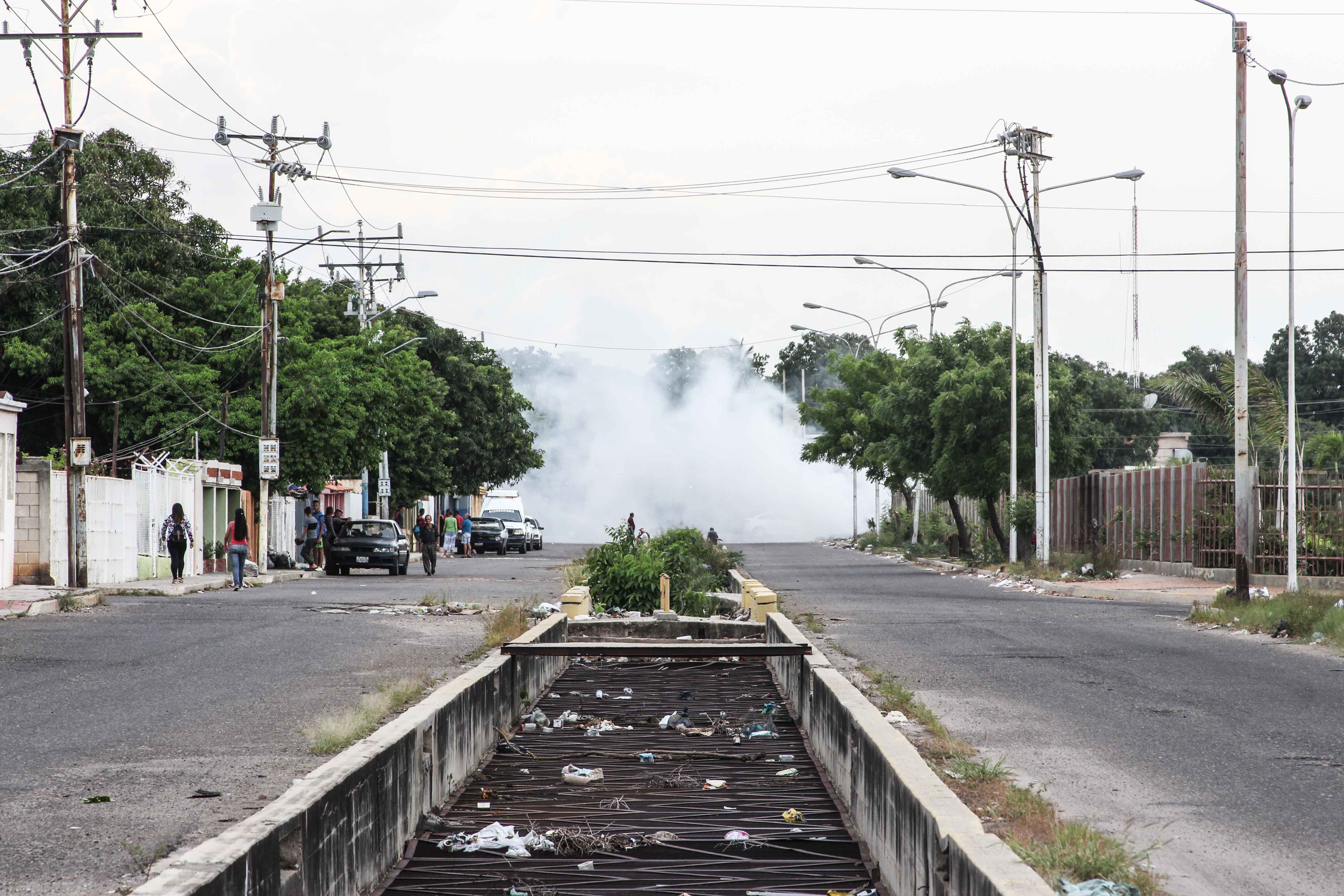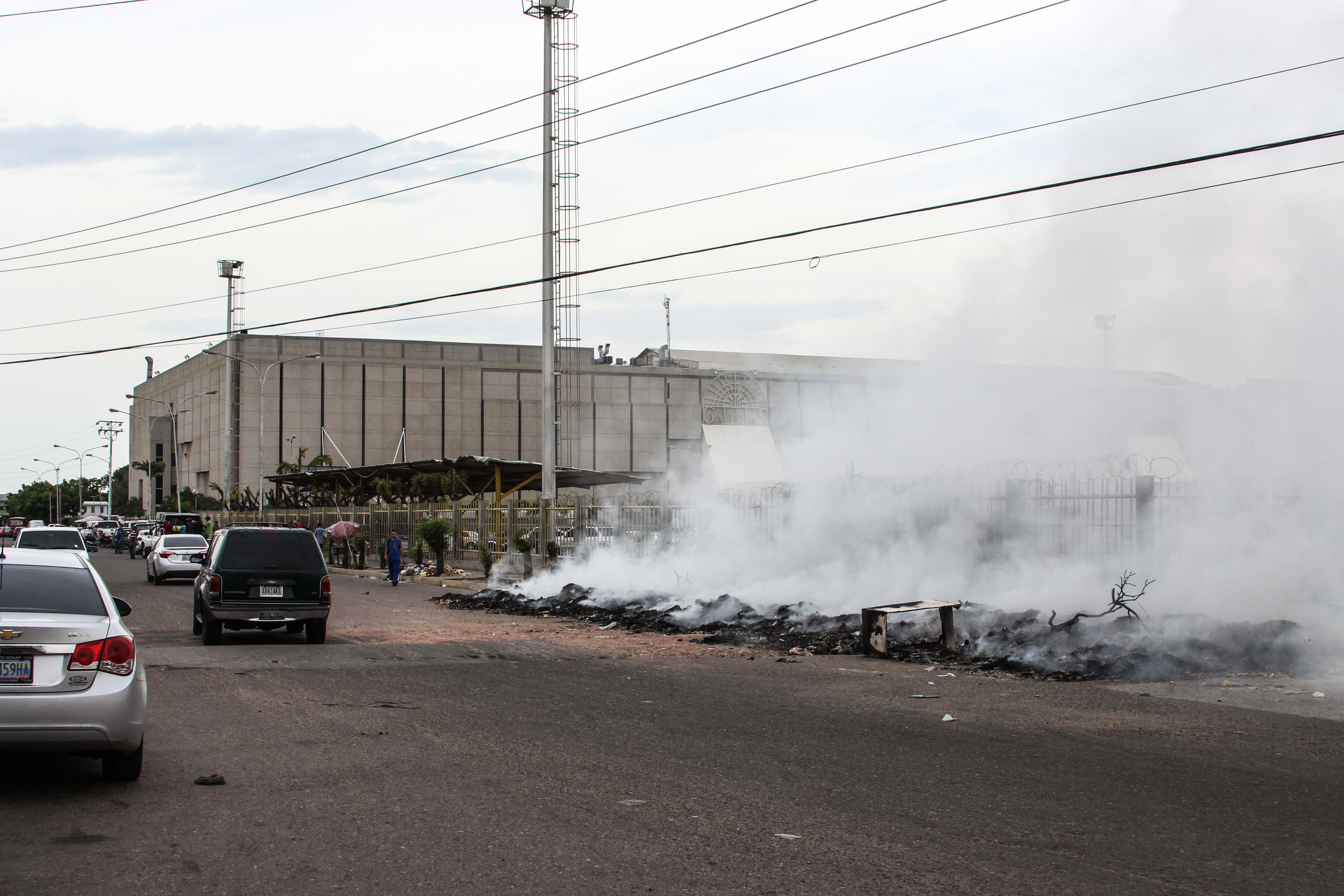Maracaibo Asphyxiated by Garbage and Efforts to Dispose of It
Trash is all around us in the fine city of Maracaibo. Mayor Willy Casanova won’t do anything about it, and people don’t know what to do with the trash. Or perhaps they do: burn it.


Photo: Mario Pérez
Nowadays, garbage in Maracaibo affects everyone regardless of race, skin color, religion or social standing. From the poorest slums, through middle class neighborhoods all the way to the historically well-to-do northern area: absolutely all sectors are surrounded by mountains of garbage, as if the whole city was a big landfill.
This problem is well beyond the capacity of mayor Willy Casanova, who promised, after taking office, a “drastic change” through a project called Maracaibo Te Quiero (Maracaibo I Love You), claiming that he’d collect garbage himself if he had to.
After seven months of his administration, he’s only made more promises, offered excuses and denounced Donald Trump’s blocking the funds to buy garbage trucks abroad, in addition to confronting those who criticize his work, even including some government spokespeople, whom he calls “The Pretenders”.
Meanwhile, the problem’s still there and people don’t know what to do with the trash. Or perhaps they do: burn it.
I see people applying this method daily in up to ten different places: when I go to work, to my grandmother’s house or just to the bakery. So, I was certain that Mario and I would find fire and smoke when we took to the street to make this photo report… and so we did.

 Photos: Mario Pérez
Photos: Mario Pérez
“It’s exasperating. The very community is our enemy because some neighbors burn the trash in this corner and we take all the smoke and they don’t. Why don’t they burn it in front of their houses?” asked Larry, a resident of the Francisco de Miranda sector nearby Galerías, a popular mall. “This happens because it’s been a year without any garbage collection here,” he added.
Gustavo Carrasquel, who has a Master’s Degree in Environmental Education, said in the regional TV show Zulia en Caliente that burning organic and inorganic matter creates carbon that spreads through the atmosphere and seeps into the tissue of any living being, remaining there even after they take a bath, which can cause cancer, among other things.
“Burning the garbage isn’t an option,” he said.
But this isn’t the only thing people do with garbage. Hundreds of people also take the option of sifting through it to find something to resell, such as plastic or soda cans. Daniel Boza, head of the Mayor’s Office Urban Management Department, has offered a shocking response: according to him, these actions aren’t related to misery, but to the so-called opportunism of citizens, who have found a business amidst the crap.
“Whoever opens trash bags to search for plastic and sell it will be punished. Recycling will allow us to have a cleaner, more organized city,” he said.
Why don’t you shut up, Boza?
Experts consulted by Tu Reporte estimate that the problem can be solved with $250,000 a month, which would be invested on labor, spare parts for trucks, supplies for workers, fuel, administrative expenses, financial costs, utility, oversight vehicles and other aspects, with the aim of collecting 1,400 tons a day.
The figure doesn’t seem so high for such a pressing issue but… who can guarantee that, once approved, the funds won’t end up in a Swiss bank account, such as those approved to solve the electric crisis?
Photos: Mario Pérez
Caracas Chronicles is 100% reader-supported.
We’ve been able to hang on for 22 years in one of the craziest media landscapes in the world. We’ve seen different media outlets in Venezuela (and abroad) closing shop, something we’re looking to avoid at all costs. Your collaboration goes a long way in helping us weather the storm.
Donate




